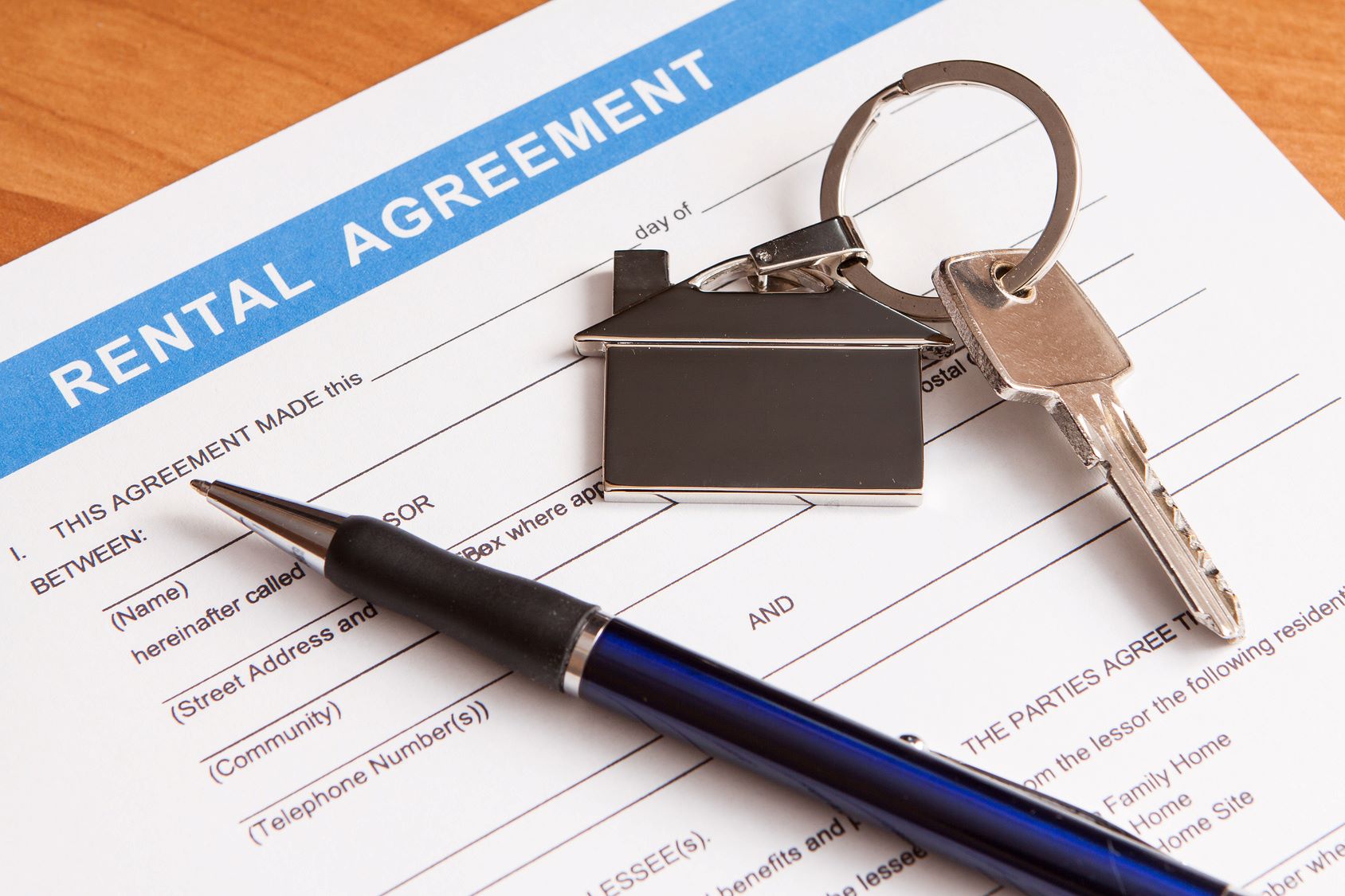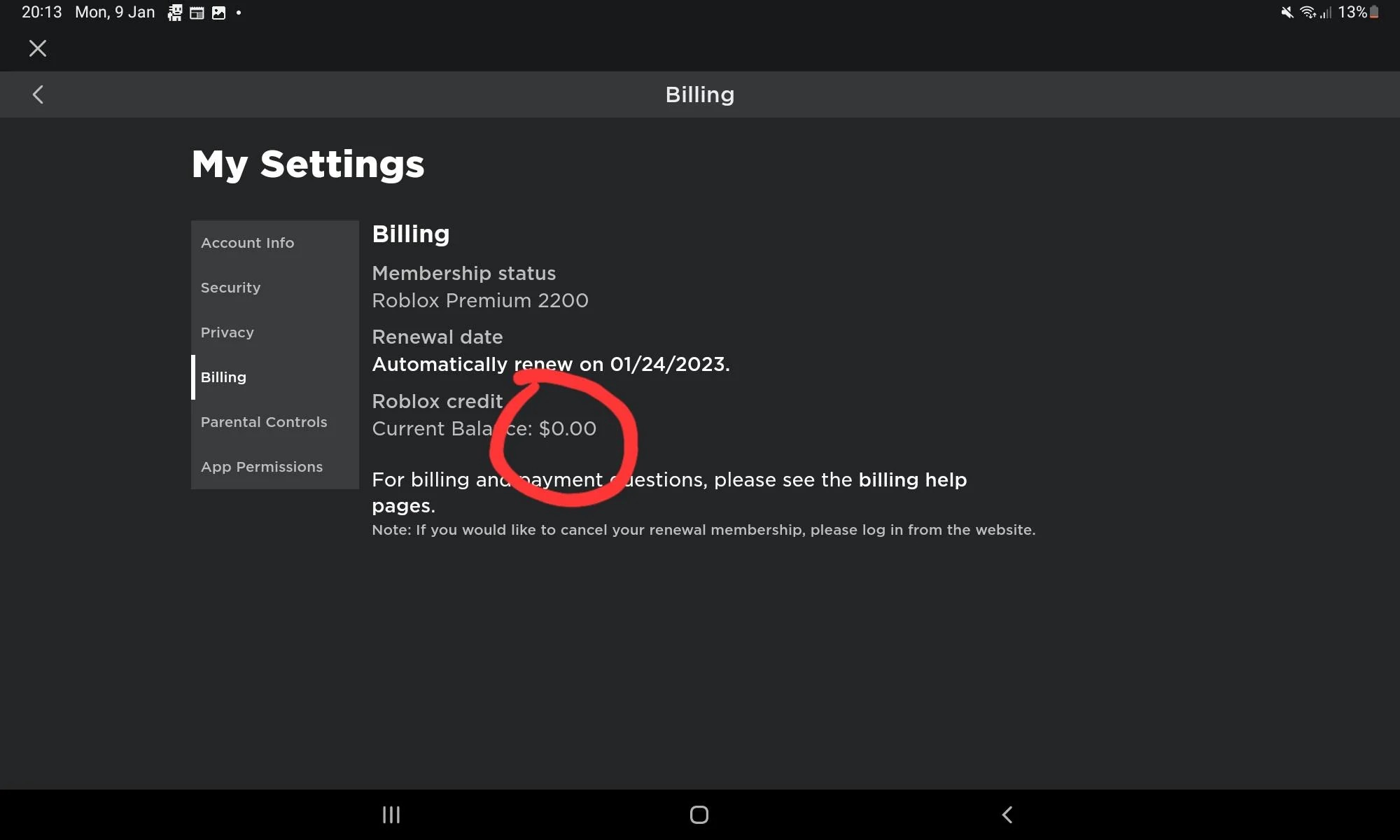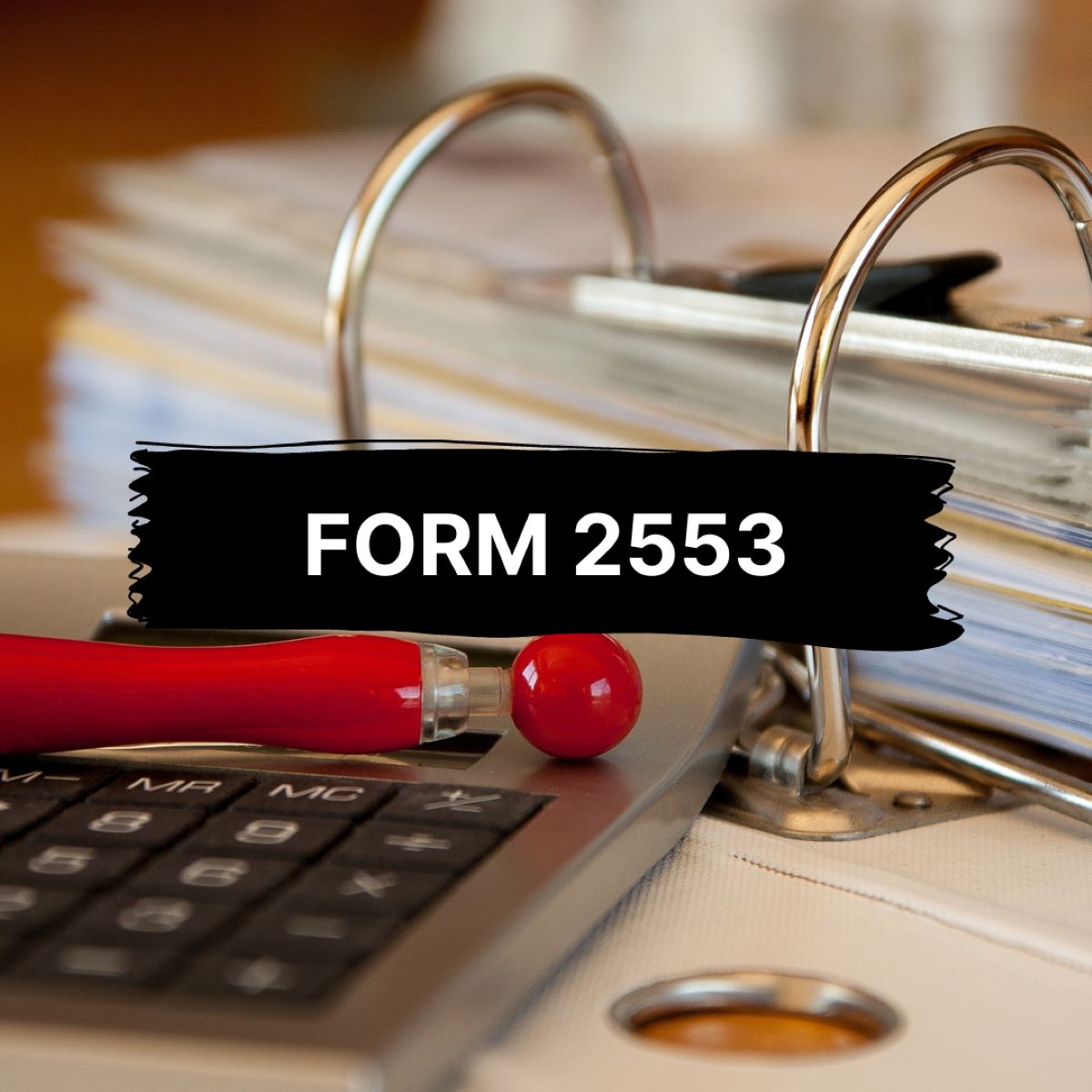

Finance
How Do I Get An Apartment With Bad Credit
Published: January 12, 2024
Discover how you can secure an apartment even with bad credit. Get expert advice and financial solutions to overcome credit challenges.
(Many of the links in this article redirect to a specific reviewed product. Your purchase of these products through affiliate links helps to generate commission for LiveWell, at no extra cost. Learn more)
Table of Contents
Introduction
Finding an apartment can be an exciting process, but it can also be challenging if you have bad credit. Your credit history plays a significant role in determining your financial reliability and trustworthiness in the eyes of potential landlords. However, having bad credit doesn’t mean you can’t secure a place to live. It simply means that you need to approach your apartment search with a strategic mindset and be prepared to take the necessary steps to improve your chances of getting approved.
In this article, we will explore how you can navigate the process of finding an apartment with bad credit. We will provide you with essential tips and insights to help you present yourself as a responsible tenant, despite your less-than-perfect credit score. Whether you have a history of late payments, defaults, or even bankruptcy, there are still options available to you.
It’s important to remember that every landlord or property management company has their own set of criteria for screening potential tenants. While some may prioritize credit scores, others may focus on income or rental history. By understanding these factors, you can tailor your approach and increase your chances of finding a suitable apartment that fits your needs.
It’s also worth mentioning that improving your credit score is not an overnight process. It takes time and consistent effort to rehabilitate your credit history. However, it’s never too late to start taking steps in the right direction. Even if you can’t immediately raise your credit score, there are strategies you can employ to enhance your overall appeal as a tenant.
So, if you’re ready to embark on your apartment hunting journey even with bad credit, let’s dive into the steps you can take to prepare yourself and increase your chances of securing your dream apartment.
Understanding the Impact of Bad Credit
Before diving into the apartment hunting process, it’s important to understand how bad credit can impact your ability to secure a rental. Credit scores are typically used by landlords as a measure of financial responsibility and reliability. A low credit score can signal to landlords that you may have a history of late payments, defaults, or even previous evictions.
Having bad credit can make it challenging to find a landlord who is willing to approve your application. Some landlords may outright reject applicants with poor credit, while others may require a higher security deposit or a cosigner to mitigate the perceived risk. Additionally, having bad credit may limit your options in terms of the types of apartments or neighborhoods you can consider.
It’s important to note that while credit scores are widely used, they are not the sole determining factor for renting an apartment. Landlords may also consider other factors, such as your income, employment history, rental history, and references. Therefore, even if you have bad credit, it’s essential to present yourself as a responsible and reliable tenant in other aspects to increase your chances of approval.
Another aspect to consider is that some landlords or property management companies may run a background check as part of the application process. This check may include looking into your criminal history, previous rental-related issues, and credit history. It’s crucial to be honest and transparent about any past financial difficulties and demonstrate your efforts to improve your financial situation.
While bad credit can present challenges, it’s important to remain positive and proactive. Understanding the impact of bad credit and how it can affect the apartment hunting process will help you navigate the process more effectively. In the following sections, we will explore the steps you can take to prepare for apartment hunting and increase your chances of finding a rental even with bad credit.
Steps to Prepare for Apartment Hunting
Preparing for apartment hunting with bad credit requires organization, planning, and diligent attention to detail. By following these steps, you can significantly improve your chances of finding a suitable apartment despite your credit history:
- Check and Monitor Your Credit: Start by obtaining a free copy of your credit report from each of the three major credit bureaus – Experian, TransUnion, and Equifax. Review the report for any inaccuracies or errors that could be negatively impacting your score. Dispute any incorrect information and work on resolving any outstanding debts. Keep track of your progress by regularly monitoring your credit.
- Set a Realistic Budget: Take a comprehensive look at your finances to determine how much you can comfortably afford to spend on rent. Consider not only the monthly rental payment but also additional expenses like utilities, parking fees, and maintenance costs. Setting a realistic budget will help you narrow down your options and avoid wasting time on apartments that are beyond your financial reach.
- Gather Necessary Documentation: Most landlords will require you to provide certain documentation as part of the application process. Gather important paperwork such as proof of income, bank statements, employment history, references, and any documentation that demonstrates your efforts to improve your financial situation.
- Build a Strong Rental History: If you have a limited rental history or have faced difficulties in the past, consider obtaining references from previous landlords or even roommates who can vouch for your responsible behavior as a tenant. This can help offset the negative perception that may arise from your credit history.
- Save for a larger Security Deposit: Offering a larger security deposit can be a way to alleviate concerns that landlords may have regarding your credit history. Saving up a larger deposit shows your commitment to fulfilling your rental obligations and can help convince them to overlook your credit issues.
- Consider Roommates or Co-Signers: Having a roommate or enlisting a co-signer with good credit can be an effective strategy for improving your chances of getting approved for an apartment. Roommates can share the financial burden, and co-signers provide an extra layer of assurance for landlords.
- Create a Personal Statement: Write a thoughtful and honest personal statement that explains your credit situation and highlights the steps you have taken or are taking to improve it. This demonstrates your commitment to financial responsibility and can help landlords see beyond the numbers.
By following these steps, you will be ready to begin your apartment hunting journey with confidence and increase your chances of finding a landlord who is willing to work with you despite your bad credit. In the next section, we will explore how to find apartments that accept bad credit and strategies for presenting yourself to landlords.
Finding Apartments that Accept Bad Credit
When you have bad credit, it’s important to focus your apartment search on landlords or property management companies that are more lenient towards credit history. While it may require some additional effort, there are several strategies you can employ to find apartments that are more likely to accept applicants with bad credit:
- Look for Apartments in Non-Traditional Channels: Consider expanding your search beyond traditional rental listing websites or agencies. Explore community bulletin boards, local newspapers, social media groups, and word-of-mouth recommendations in your desired neighborhoods. These channels often have listings from independent landlords who may be more open-minded about credit issues.
- Work with Rental Locators or Real Estate Agents: Rental locators or real estate agents who specialize in finding rental properties can be a valuable resource. They have access to a wide range of listings and market knowledge, which can help you find apartments that are willing to consider applicants with bad credit.
- Seek Out Apartments with Individual Landlords: Apartments owned by individuals, rather than large property management companies, may be more flexible in their criteria. Individual landlords may be willing to consider other factors, such as income or rental history, in addition to credit scores.
- Consider Subletting or Renting from a Roommate: Subletting or renting a room from someone who already has an apartment can be a viable option. In these cases, the primary tenant is often more focused on finding a responsible person to fill a vacancy rather than scrutinizing credit scores.
- Explore Affordable Housing Programs: Some affordable housing programs, such as Section 8, have specific provisions for individuals with bad credit. These programs aim to provide housing opportunities for individuals and families with lower incomes and may take other factors into consideration apart from credit history.
- Networking and Personal Connections: Reach out to your network of friends, family, and colleagues to see if anyone knows of any available rentals or landlords who may be willing to overlook bad credit. Personal connections can sometimes lead to hidden opportunities that might not be publicly advertised.
By utilizing these strategies, you can increase your chances of finding apartments that are more accommodating towards bad credit applicants. Remember to be proactive and persistent in your search, and don’t get discouraged if you encounter rejections along the way. In the next section, we will provide tips for presenting yourself to landlords and highlighting your strengths despite your credit history.
Tips for Presenting Yourself to Landlords
When you have bad credit, it’s crucial to make a positive and professional impression on potential landlords. Here are some tips to help you present yourself in the best possible light, despite your credit history:
- Be Honest and Transparent: When filling out rental applications or communicating with landlords, be upfront about your credit history. Explain any circumstances that may have contributed to your bad credit, but also emphasize the steps you have taken or are taking to improve your financial situation.
- Provide Strong References: Gather references from employers, previous landlords, or other individuals who can vouch for your reliability and responsibility as a tenant. These references can help offset the negative impact of your credit history and provide reassurance to landlords.
- Show Proof of Stable Income: Demonstrating a stable income is essential when trying to secure a rental. Provide copies of recent pay stubs, employment contracts, or bank statements to showcase your financial stability and ability to meet your rental obligations.
- Offer a Higher Security Deposit: If you have the means, consider offering a larger security deposit as a sign of your commitment to fulfilling your rental responsibilities. A higher deposit can help alleviate concerns that landlords may have regarding your credit history.
- Explain Your Credit Rehabilitation Efforts: If you’ve been actively working on improving your credit, make sure to highlight those efforts. Provide documentation such as proof of on-time payments or enrollment in credit counseling programs to demonstrate your dedication to financial responsibility.
- Provide Bank Statements: In addition to proof of income, offering bank statements can give landlords a clearer picture of your financial situation. If your bank account shows regular deposits and responsible spending habits, it can help build trust and offset concerns about your credit history.
- Get a Co-Signer: Having someone with good credit willing to co-sign the lease can significantly increase your chances of getting approved for an apartment. A co-signer acts as a guarantor, taking on the responsibility of paying rent if you are unable to do so.
- Write a Personal Statement: Craft a personal statement that details your commitment to being a responsible tenant, despite your credit history. Explain the circumstances that led to your credit difficulties and outline the steps you have taken to rectify the situation. This can help landlords see you as more than just a credit score.
Remember, presenting yourself professionally, being transparent about your credit history, and highlighting your strengths can make a significant difference in how landlords perceive you as a potential tenant. Don’t shy away from explaining your situation and showcasing your efforts to improve your financial standing. In the next section, we will explore options to improve your chances of getting approved, even with bad credit.
Options to Improve Your Chances of Getting Approved
While having bad credit may present challenges, there are several options you can consider to improve your chances of getting approved for an apartment:
- Offer to Pay a Higher Monthly Rent: Landlords may be more inclined to overlook your bad credit if you are willing to pay a higher monthly rent. Offering to pay a slightly higher amount can demonstrate your commitment to fulfilling your rental obligations and may offset the perceived risk.
- Get a Co-Signer: As mentioned earlier, having a co-signer with good credit can significantly increase your chances of getting approved. A co-signer essentially guarantees that the rent will be paid, even if you are unable to do so. Before considering this option, ensure that the co-signer fully understands their responsibilities and the potential ramifications.
- Look for Landlords Who Don’t Check Credit: Some landlords may not perform thorough credit checks or may prioritize other factors like income or rental history. Look specifically for landlords who are more lenient regarding credit checks or who have alternative methods of evaluating potential tenants.
- Consider Month-to-Month or Short-Term Leases: Month-to-month or short-term lease options may be more easily accessible to individuals with bad credit. While these leases may come with higher monthly rents or less favorable terms, they provide an opportunity to establish a positive rental history, which can improve your chances for future applications.
- Provide Proof of Stable Employment: Demonstrating a stable employment history and secure income can help alleviate concerns about your credit history. Provide copies of employment contracts, pay stubs, or letters from your employer to showcase your financial stability and ability to consistently meet your financial obligations, including rent payments.
- Consider Subletting or Renting from Individuals: Subletting from individuals or renting rooms in shared accommodations can be more flexible options when you have bad credit. In these cases, the primary tenant may have more control over the screening process and may be more willing to overlook credit issues if they find you responsible and reliable.
- Show Improvement: If you’ve been actively working on improving your credit, be sure to provide evidence of your efforts. This can include recent credit reports that show progress, proof of on-time bill payments, or letters of recommendation from creditors or financial advisors.
- Be Flexible with Location and Amenities: Expanding your search parameters to include a wider range of neighborhoods or being open to apartments with fewer amenities can increase your chances of finding a landlord who is open to working with you despite your credit history. Widening your options can also give you more leverage in negotiations.
By exploring these options and being proactive in your search, you can improve your chances of getting approved for an apartment, even with bad credit. Remember to communicate openly, showcase your strengths, and be flexible in your approach. Lastly, continue working diligently to improve your credit over time, as this will open up even more opportunities for you in the future.
Conclusion
Finding an apartment with bad credit may seem daunting, but it’s not impossible. By understanding the impact of bad credit, preparing yourself for the apartment hunting process, and utilizing strategies to improve your chances, you can secure a place to live that meets your needs.
Remember that every landlord and property management company has their own criteria for screening tenants. While credit history is important, it’s not the sole determining factor. By presenting yourself in a professional and responsible manner, being transparent about your credit situation, and highlighting your strengths, you can overcome the hurdles of bad credit and increase your chances of approval.
Additionally, exploring alternatives such as renting from individuals, considering short-term leases, or offering higher security deposits can open up more opportunities. It’s also essential to continue working on improving your credit by monitoring it regularly, disputing errors, and showing a track record of responsible financial behavior.
Remember to be patient and persistent in your search. Not every application may be successful, but the right opportunity will come along. Stay positive, proactive, and open-minded, and don’t be afraid to seek assistance from rental locators or real estate agents who specialize in working with tenants with bad credit.
In the end, finding an apartment with bad credit requires determination, organization, and a proactive approach. By following the steps outlined in this article and staying focused on your goal, you can find a suitable place to live and embark on a new chapter in your life. Don’t let bad credit define your future; instead, use it as a motivation to improve your financial standing and secure the housing you deserve.














